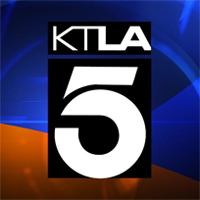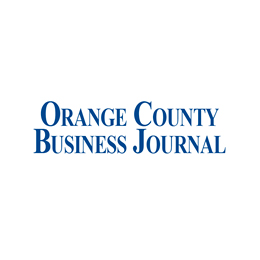Media Watch
California, Nevada no longer under 'exceptional drought' conditions following severe influx of rainfall
ABC News -
But it will take several seasons at 120% to 200% the normal rain and snowfall to eliminate drought in the West, according to experts. A tough feat, considering the anthropogenic -- or human-induced -- warming many states in the West, including California and Nevada, are experiencing, Amir AghaKouchak, a professor at the University of California, Irvine who specializes in hydrological extremes and drought monitoring, told ABC News. Drought has "many dimensions," and climate change is expected to alter the relationship between drought and flooding in the West, AghaKouchak said. Read More
Mudflow & flooding concerns in Orange County
KTLA - News -
“When a fire happens, it removes the vegetation from the hill slopes and the vegetation usually serves to hold the soil in place, so the soil becomes less stable.“ “Ariane Jong-Levinger, is a PhD candidate in civil and environmental engineering at UC Irvine who studies flooding issues caused by fires. We asked her how long it generally takes for hillside communities like this one [Silverado] to get back to normal.” [Starts 7:28] Read More
This map shows which parts of San Francisco are most at risk of flooding
SF Chronicle -
Brett Sanders, a civil and environmental engineering professor at UC Irvine who specializes in creating flood assessments, said rainfall in San Francisco over New Year’s Eve was “an extreme event that probably approaches a 50-to-100 year event or more.” … “The combined effects of a really wet storm with aging infrastructure and with changing land use — collectively, all those three factors led to intense flooding across the region,” Sanders said. [Subscription required, you can request an electronic copy of the article by sending an email to communications@uci.edu.] Read More
Robot fireflies and okra band-aids: 2022's nature-inspired solutions
Japan Times (AFP) -
“Nature has spent hundreds of millions of years optimizing elegant solutions to extremely complicated problems,” said Alon Gorodetsky, [associate professor], a biomedical engineer at the University of California, Irvine. “So if we look to nature, we can shortcut our development process and get to a valuable solution right away,” he said. … “Nature really is the epitome of innovation and engineering,” Gorodetsky added. Read More
An Esp32-Based Potentiostat
Hackaday -
Ever wanted to make your own wireless chemical sensor? Researchers from the University of California, Irvine (UC Irvine) have got you covered with their ESP32-based potentiostat. … Potentiostats are instruments that analyze the electrical properties of an electroactive chemical cell. Read More
New findings show how Cyanobacteria spread biofilms on rocks to dissolve minerals as nutrition
Stone-Finder -
“Through a biological process that has evolved over millions of years, these tiny miners excavate rocks, extracting the minerals that are essential to the physiological functions, such as photosynthesis, that enable their survival,” said corresponding author David Kisailus, UCI professor of materials science and engineering. “Could humans use a similar biochemical approach to obtain and manipulate the minerals that we find valuable?” Read More
Microbial mining could help colonize Moon and Mars, study claims
Interesting Engineering -
Some universities study colonization in space, like the University of California, Irvine. Engineers at the University of California, Irvine said microbes could help colonize the Moon and Mars. … “Through a biological process that has evolved over millions of years, these tiny miners excavate rocks, extracting the minerals that are essential to the physiological functions, such as photosynthesis, that enable their survival,” said corresponding author David Kisailus, UCI professor of materials science and engineering. Read More
Scientists, lawmakers meet to discuss to region’s eroding beaches
The Orange County Register -
Scientists, researchers, planners and lawmakers gathered at UC Irvine … to discuss ways to address the region’s chronic coastal erosion issues. The discussion was led by a team of scientists from the Samueli School of Engineering …. Beaches are not just environmental indicators for matters such as sea level rise and climate change, but also economic engines and a rich part of the state’s heritage, said Samueli School of Engineering Dean Magnus Egerstedt. … Brett Sanders, a UCI professor of civil and environmental engineering, said a digital platform could use already available research and data …. [Subscription required, campus-wide access provided by UCI Libraries. Sign-up here: https://guides.lib.uci.edu/news/ocregister] Read More
Startups & Innovations – Funding
Orange County Business Journal -
Cellecho Inc., an Irvine biotech company, is seeking funding for its cell therapy technology that aims to make immunotherapy more accessible and safer for cancer patients. … Cellecho’s alternative is a microchip-based technology that reprograms cells. Its treatment can be manufactured in one day, versus the two weeks it takes to develop the standard cell therapy drug. “Our chips are highly scalable and offer consistent and precise cell engineering that minimizes manufacturing failure,” [postdoctoral scholar Mohammad] Aghaamoo said last month at a pitch event held at the University of California, Irvine. [Subscription required, you can request an electronic copy of the article by sending an email to communications@uci.edu.] Read More
Future Moon and Mars Astronauts Could Use Microbes for Settlement Construction
Labroots -
In a recent study published in Materials Today Bio, an international team of researchers led by the University of California, Irvine (UCI) analyzed how microbes could help future Moon and Mars astronauts in the construction of settlements on those respective celestial bodies. This study holds the potential to use microorganisms in civil engineering projects in extreme environments, such as 3D printing or additive manufacturing. … "Through a biological process that has evolved over millions of years, these tiny miners excavate rocks, extracting the minerals that are essential to the physiological functions, such as photosynthesis, that enable their survival," said Dr. David Kisailus, a UCI professor of materials science and engineering, and a co-author on the study. Read More










